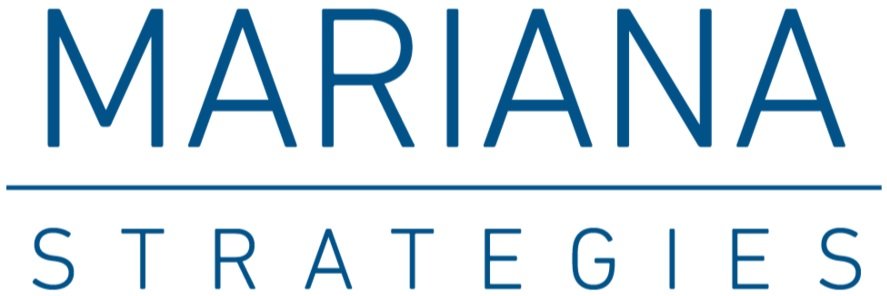8 Important Changes to New York's Anti-Harassment Law
By Audrey Roofeh
August 30, 2019
On August 12, Governor Cuomo signed into law sweeping changes to New York’s laws on preventing harassment in the workplace. Here are eight important features of the new law (Assembly Bill 8421) that workers and employers in New York should be aware of:
Who’s an employer? All employers. No exception for size. Keep in mind that when talking about a private employer this includes any person, company, corporation, labor organization or association.
Does the new law make it easier or harder to prove harassment? Easier. Perhaps the most significant is the change to the legal standard for proving harassment in the workplace. Previously, a plaintiff would have to show that the harassment was severe or pervasive in order to be unlawful. The new standard is whether the actions subject someone to inferior terms, conditions or privileges of employment because of the individual's membership in one or more of these protected categories (age, race, creed, color, national origin, sexual orientation, gender identity or expression, military status, sex, disability, predisposing genetic characteristics, familial status, marital status, domestic violence victim status, and for retaliation).
It’s also no longer determinative that an individual complain about the harassment to their employer, and the employee doesn’t have to demonstrate the existence of an individual to whom the employee's treatment must be compared. There is an affirmative defense to liability that the harassing conduct does not rise above the level of what a reasonable victim of discrimination with the same protected characteristic would consider petty slights or trivial inconveniences.
Who’s covered? Domestic workers, contractors, vendors, or consultants can bring an unlawful discrimination claim, not just W-2 employees.
How long is the statute of limitations? New York expanded the time to bring a claim of sexual harassment to three years. Bringing a claim of unlawful discrimination on the basis of other protected categories is still one year.
What about attorneys’ fees and damages? If a person brings a suit and “substantially prevails” they will be awarded reasonable attorneys’ fees and can seek punitive damages. The employer can recover attorneys’ fees only if they show that the claim was frivolous.
What’s happening with these non-disclosure agreements? Let’s take a step back. A “non-disclosure agreement” (NDA) is just what it sounds like. It’s an agreement that a person makes not to talk about something. What New York did was to say that NDAs aren’t allowed to keep someone from talking about the experience of workplace harassment, because we have a public policy interest in making sure this information gets out in the open.
The new law says that NDAs can’t be enforced unless they are the will of the complainant, with specific timing requirements to allow the complainant to consider whether they really want to agree to it. In addition, the law says that any NDA is void to the extent that it prevents the complainant from participating in an investigation by authorities, or initiating, testifying, assisting, or complying with a subpoena or filing. It also can’t prevent the person from disclosing any facts needed to receive unemployment insurance, Medicaid or other public benefits.
Beginning in January 2020, an NDA between an employer and an employee or potential employee related to future claims of discrimination is void unless it says that that it does not prohibit the individual from speaking with law enforcement, the Equal Employment Opportunity Commission, the State Division of Human Rights, a local commission on human rights, or an attorney retained by the employee or potential employee.
How about being required to arbitrate instead of going to court? Mandatory arbitration is a hot topic, and last year New York banned mandatory arbitration of sexual harassment claims. With this new legislation, New York also banned mandatory arbitration to resolve any allegation or claim of discrimination under New York’s Human Rights Law. While a recent decision in federal court said, as expected, that both the 2019 and 2018 prohibition on mandatory arbitration is preempted by the Federal Arbitration Act, and that New York’s ban on arbitration requirements is unenforceable, businesses should follow this developing story.
What information does an employer have to give its employees? Employers will have to give employees the business’s sexual harassment policies and sexual harassment training materials, in English and in each employee’s primary language, both at the time of hire and during each annual sexual harassment prevention training.
What does this all mean? Employers need to step up their game to prevent harassment in a serious way, and not just for sexual harassment. New York just made it easier for a worker (including consultants, contractors, vendors, and domestic workers) to win in court by lowering the standard of proof. New York also made it easier for these workers to get a lawyer (by awarding attorneys’ fees to successful plaintiffs) and took away employers’ bargaining chips of NDAs. And New York will presumably fight for an end to mandatory arbitration of discrimination cases. This all builds on last year’s legislation in New York that requires businesses to provide sexual harassment prevention training. (Reminder: you have to provide the training by October 9, 2019.) New York is clearly staking its claim as the state where your work will be unimpeded by workplace harassment.
